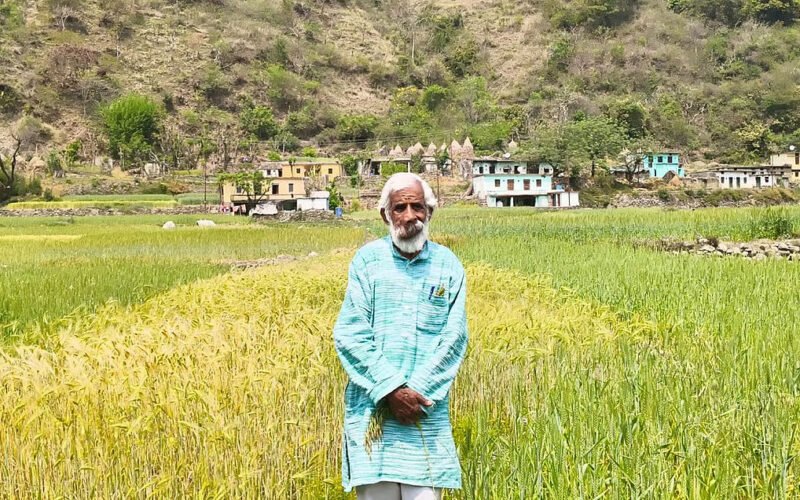Renowned environmentalist, farmer, and social worker Vijay Jardhari, who pioneered the Save Seed Movement (Beej Bachao Andolan), has devoted his life to preserving traditional seeds and promoting sustainable agriculture in the Garhwal Himalayas. In a wide-ranging conversation with Arvind Bijalwan, professor of agroforestry at VCSG Uttarakhand University of Horticulture & Forestry, Jardhari reflects on his journey, the challenges of modern farming, and the enduring relevance of indigenous knowledge.
The Beginning of the Save Seed Movement
Jardhari recalls his early association with the Chipko Movement (1973), which inspired him to turn his attention toward farming. He witnessed the spread of hybrid seeds and chemical fertilizers during the Green Revolution and realized their long-term harm: infertile soil, dependency on external inputs, and the disappearance of traditional grains like mandua, jhangora, kauni, and cheena.
“Hybrid seeds may yield more, but they destroy soil health and make farmers dependent,” Jardhari said. This realization led him to travel from village to village, collecting traditional seeds and spreading awareness about their importance. Thus began the grassroots Save Seed Movement, which promoted seed sovereignty, mixed cropping, and traditional food diversity.

Challenges and Awareness
Initially, scientists and urban elites dismissed the movement as “anti-development.” But local farmers, especially women, understood its message. Through padyatras spanning hundreds of kilometers, Jardhari and his colleagues taught communities about the risks of monocropping and the value of mixed farming systems.
He recalls a Garhwali proverb villagers often cited:
“Apna aaloo bajar becha, Birana aaloo na thobda thecha” — They sell your good quality potato in the market and then make you purchase poor quality potato for your own consumption.
The Barahnaja System
At the heart of Jardhari’s philosophy lies the Barahnaja system—a form of mixed farming where twelve or more crops are grown together, mimicking the diversity of forests. Finger millet (mandua), barnyard millet (jhangora), kidney beans, sesame, and pulses coexist in a resilient and nutritious cropping system.
“This biodiversity keeps soil alive, ensures nutrition, and protects crops from diseases,” Jardhari explained. “It is a lesson from the forest, where every species supports another.”

The Importance of Millets
Jardhari has long championed millets as nutritious, climate-resilient crops. Once dismissed as “coarse grains,” millets have now been rebranded as nutri-cereals and gained global recognition, with the UN declaring 2023 the International Year of Millets.
“These grains are fine in every sense—rich in nutrition, resilient to climate change, and vital for health,” Jardhari said.
Soil, Forests, and Agroforestry
Calling soil “priceless,” Jardhari warns against the destruction caused by chemical fertilizers. He advocates natural methods like mulching and organic manure to preserve soil microbes.
In the hills, traditional agroforestry is also central. Farmers integrate trees into their fields, which provide fodder, fruits, fuel, and protect against erosion while also sequestering carbon.
Achievements of the Movement
The Save Seed Movement has successfully preserved:
340+ varieties of paddy
30+ varieties of wheat
220 types of kidney beans (Rajma)
Multiple types of black gram, cluster beans, and traditional vegetables
Jardhari has been recognized internationally, invited to conferences in South Africa, Belgium, Malaysia, and Germany, and has received several awards, including the Indira Gandhi Paryavaran Puraskar.
Looking Ahead
Despite challenges like climate change, forest fires, and migration from hill villages, Jardhari remains hopeful. His vision is clear: “Our ancestors gave us precious seeds and knowledge. If we conserve them in as many varieties as possible and keep farming pure, our food will keep us healthy. That will be the true success of this movement.”

